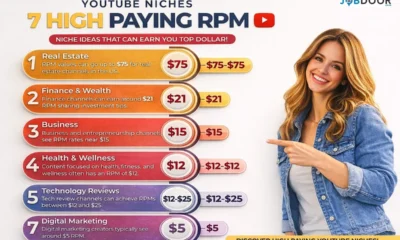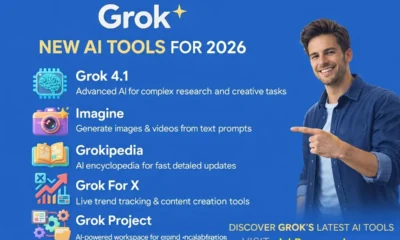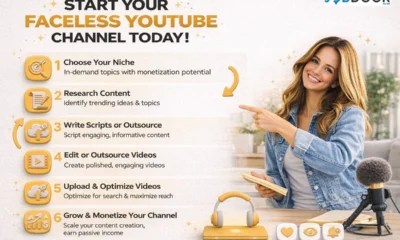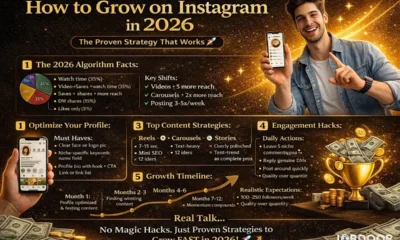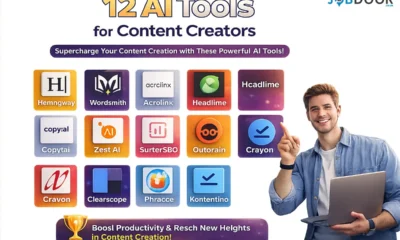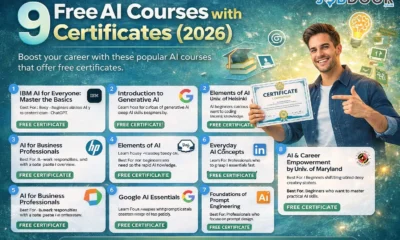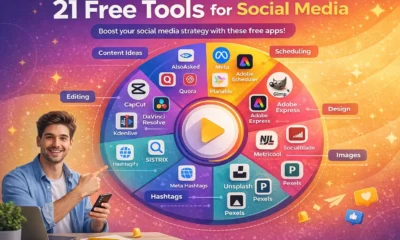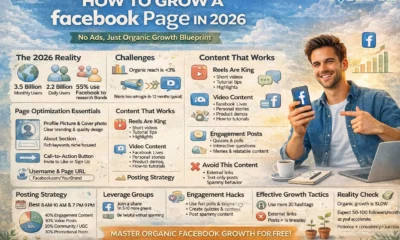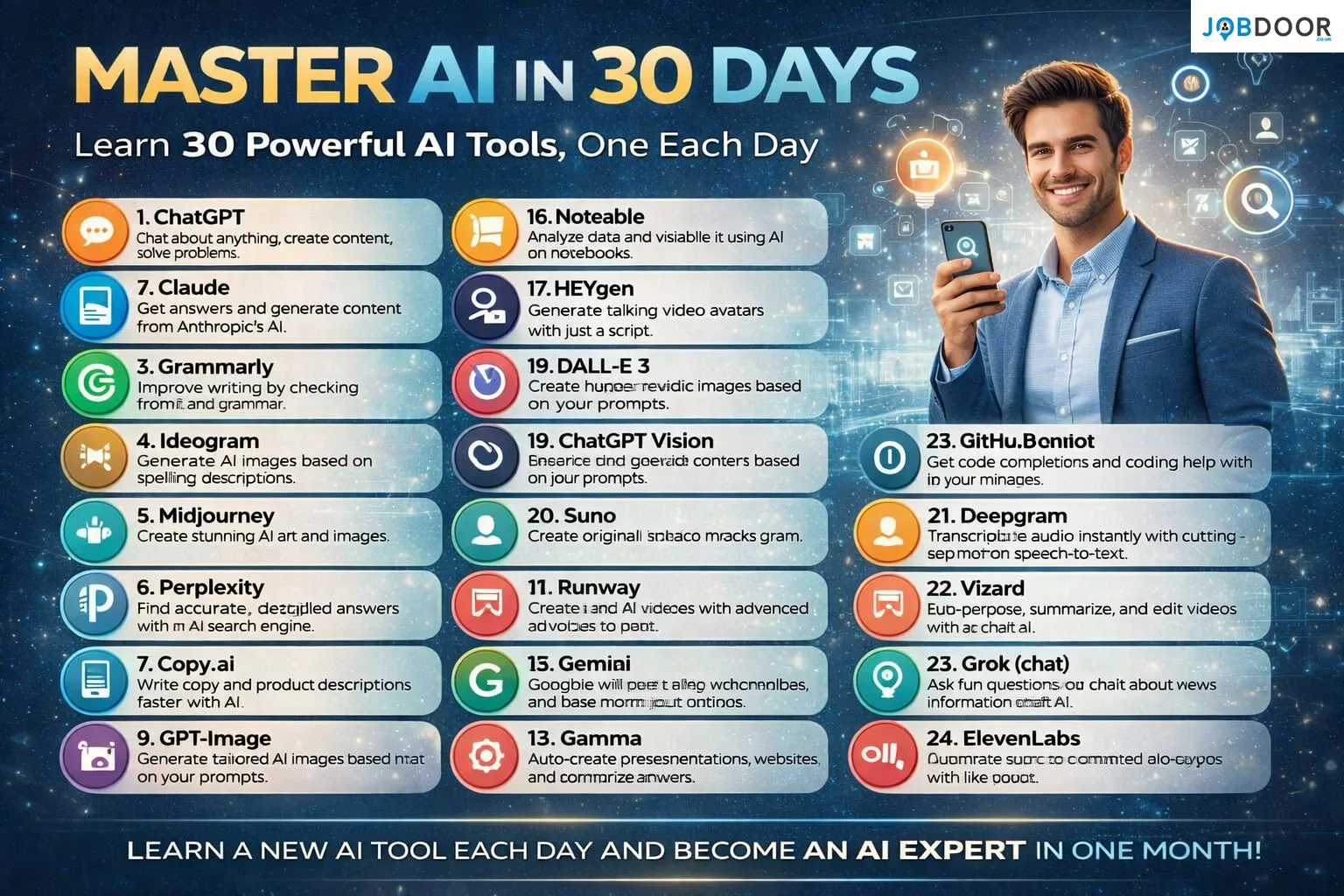Career
10 Resume Mistakes Job Seekers Don’t Realize They’re Making


To make the right career moves and boost your job prospects, you need to have a resume that highlights your education, work experience, objectives and skills as well. Your resume is what makes the first impression on your behalf with prospective employers, which is why it has to be paid due attention to. Sadly, there are still a few resume mistakes that are often seen. If you see any of these on yours then it’s time to change things up.
Using generic resume and cover letter:
What many job seekers do is that they use the same resume and cover letter for different job profiles. However, that can be a huge mistake, especially if you are using a functional resume. You need to make the most out of the section where you can talk about your skills. If you customize your resume and cover letter you can ensure that this section talks about skills that are suited for the job description. It will let the recruiter know that you are the right candidate for the specific job.
Keeping skills section at the end:
You understand the importance of having skills section in your resume but do you know that you just can’t save it for the end? In fact, it’s the first section that your prospective employers are going to read, which is why it should focus on skills that are best suited for the job. By doing that you will verify your resume emerges from the rest.
Too long or too short resume:
As a rule of thumb, your resume should be about a page long. If it’s longer then the recruiter is likely to get bored. On the other hand it being too short could be assumed that you don’t have a lot to offer. Hence you have to create a resume that is of just the right length and it should tell your future employer why you and only you are the right person for the job.
Resumes that are not user friendly:
The clean, clear layout of your resume will go a long way in being appealing to your employers. Rather than cramping too much on one page, use the next page to organize your resume well. Bullet points can be used to divide your work experience, qualification etc. to offer a clearer picture to the recruiter. You can consider it to be your first interview and go about it in a way that you want to make all your qualifications known.
No links to social media profiles:
Not having a LinkedIn profile or Twitter account or a blog means ruling out a large number of prospective employers. If you want your resume to be in keeping with the times, you have to include links to social media profiles in it. One smart way of doing that is keeping URLs for your Twitter and LinkedIn accounts at the top of your page, right after your contact information.
Spelling mistakes and grammatical errors:
Good news is that spelling mistakes and grammatical errors can be remedied easily. The bad news is that these mistakes are often seen on resumes, and they are the reason recruiters weed out a large number of applicants. You could be highly qualified for the job but if your resume has these mistakes, you will be relegated to the No pile. It’s good practice to ask a friend to review your resume to avoid these mistakes.
Using online resume templates:
Using these templates is a sure shot way of making your resume look like a thousand others. That’s because these templates are out-dated and their complex layouts only end up making things worse. Using these templates can affect your credibility and viability as the ideal person for the position.
Lack of important keywords:
We live in times where employers often look for resumes based on some crucial keywords. That’s the reason you need to include them in your resume and they should be placed appropriately too. Keeping them in the top half of your resume is a good idea because they will draw the attention of any recruiter instantly. Using shorter keywords helps you make a bigger impact. Just saying what you did and not how you did it. You might have a solid employment history with some of the biggest names in the business. But that alone will not make you stand out in front of your future employers, who would like to know how you performed in your previous positions and the difference you made to the company. Ensure that your resume tells recruiters why you were an asset to your previous company. Your past work accomplishments should be used so that they support your cause of being the best candidate for the job.
Lying:
Lying in your resume, even if it’s a white or a small lie is the worst thing you can do. Today recruiters have several options including calling up references, search engines and social media to check the authenticity of your claims. Keep away from exaggerating credentials or plain lying because that can actually get you in trouble.
Career
9 Free AI Courses with Certificates in 2026 (Step-by-Step Guide)
“AI Sounds Important… But Is It Really for Me?”
Let’s be honest.
When you hear Artificial Intelligence, what comes to mind?
Complex math? Coding? Long hours? Expensive courses?
You’re not wrong to feel confused or even intimidated.
Many students and beginners think free AI courses are low quality, too technical, or a waste of time. Some even tried one before… and quietly quit halfway.
Here’s the truth most people don’t tell you:
You don’t need to be smart, technical, or experienced to learn AI. You just need the right starting point.
In this guide, I’ll walk you through:
- What AI really means?
- The right mindset for learning AI without stress
- 9 genuinely free AI courses with certificates in 2026
- How to choose the right course for you
- How to track your progress and stay consistent
No jargon.
No pressure.
Just a clear path forward.
Let’s begin.
What Is AI?
Artificial Intelligence (AI) simply means teaching computers to think and learn like humans—at least a little.
AI is already around you:
- Google search suggestions
- YouTube recommendations
- Chatbots
- Face recognition on phones
- Spam email filters
You don’t need to build AI to benefit from it.
First, you just need to understand how it works and how it’s used.
That’s exactly what these free AI courses with certificates help you do.
The Right Mindset Before You Start Any AI Course:
Most beginners fail not because AI is hard—but because they start with the wrong mindset.
Common Fears (Totally Normal):
- “Free courses won’t be respected”
- “I’m not good at math”
- “I don’t have a technical background”
- “What if I don’t understand anything?”
Take a breath.
The Correct Beginner Mindset:
- You are learning concepts, not becoming a scientist
- Progress matters more than speed
- Certificates are proof of effort, not perfection
Think of AI like learning to drive.
You don’t start with a Formula 1 car.
You start with basics.
Why Free AI Courses with Certificates Are Worth It in 2026?
Let’s clear this doubt once and for all.
Yes, free AI courses can be valuable.
When they come from trusted platforms.
They help you:
- Understand AI fundamentals
- Improve your resume
- Build confidence
- Decide if AI is right for your career
And most importantly…
You lose nothing except time—and you gain clarity.
Now, let’s get to the list you came for.
9 Best Free AI Courses with Certificates in 2026:
Below are carefully chosen courses that are:
- Free (or free with certificate option)
- Beginner-friendly
- Recognized globally
- Easy to follow at your own pace
1. AI for Everyone – Andrew Ng:
Platform: Coursera
This is one of the best starting points for absolute beginners.
What You’ll Learn?
- What AI can and cannot do
- How AI is used in real businesses
- Common myths about AI
Why It’s Beginner-Friendly?
- No coding
- No math
- Pure concepts, explained simply
Certificate:
- Free to learn
- Certificate available via financial aid
Best for: Non-technical learners, students, managers
2. Introduction to Artificial Intelligence – IBM:
Platform: IBM (via Coursera)
What You’ll Learn?
- Basics of AI, ML, and deep learning
- AI use cases in real industries
- Ethics of AI
Key Highlights:
- Taught by a global tech company
- Beginner-level explanations
- Short modules
Certificate:
- Free with financial aid
Best for: Resume builders and corporate learners
3. Google AI for Beginners:
Platform: Google
Google offers simple learning paths under its AI initiative.
What You’ll Learn?
- Machine learning basics
- AI tools used by Google
- Real-world examples
Why It’s Powerful?
- Trusted brand
- Clean explanations
- Practical insights
Certificate:
- Free certificate available
Best for: Students and job seekers
4. Introduction to AI – Microsoft Learn:
Platform: Microsoft
What You’ll Learn?
- AI workloads
- Machine learning basics
- Responsible AI concepts
Why Beginners Love It?
- Short lessons
- Interactive learning
- Clear structure
Certificate:
- Free completion badge
Best for: Beginners who like step-by-step learning
5. AI Basics for Everyone – Udemy (Free):
Platform: Udemy
What You’ll Learn?
- AI terminology
- How AI impacts jobs
- Everyday AI tools
Things to Know:
- Certificate available
- Course quality varies (check ratings)
Best for: Casual learners and fast starters
6. Elements of AI:
Provider: University of Helsinki
This course is famous worldwide.
What You’ll Learn?
- How AI works
- Societal impact of AI
- Logical thinking behind AI
Why It’s Special?
- No coding required
- Used by governments and universities
- Extremely beginner-friendly
Certificate:
- Free certificate
Best for: First-time learners
7. AI Foundations – LinkedIn Learning:
Platform: LinkedIn
What You’ll Learn?
- AI fundamentals
- Career relevance
- Business use cases
Certificate:
- Free certificate during trial period
Best for: Professionals and fresh graduates
8. Machine Learning Crash Course:
Platform: Google Developers
What You’ll Learn?
- Core ML concepts
- Visual explanations
- Practical understanding
Note:
- Slightly technical
- Still beginner-friendly
Certificate:
- Free completion badge
Best for: Curious learners ready to go deeper
9. AI Ethics and Responsible AI:
Platform: Microsoft / IBM
What You’ll Learn?
- Ethical AI use
- Bias and fairness
- Real-world implications
Why It Matters?
AI is not just about technology—it’s about responsibility.
Certificate:
- Free
Best for: Students and future professionals
How to Choose the Right Free AI Course?
Ask yourself three simple questions:
- Do I want concepts or coding?
- Concepts → AI for Everyone
- Coding later → Google or IBM
- Do I need a certificate?
- Yes → Coursera, Microsoft, Google
- How much time can I give daily?
- 30 minutes is enough
👉 Choose ONE course. Not three.
Step-by-Step System to Complete Any AI Course Successfully:
Step 1: Block Small Time Slots
- 20–30 minutes a day
- Same time every day
Step 2: Learn, Don’t Rush
- Pause videos
- Take notes
- Rewatch if needed
Step 3: Apply Light Learning
- Explain concepts in your own words
- Share what you learn with a friend
Step 4: Finish and Claim Certificate
- Certificates boost confidence
- Add them to LinkedIn or resume
How to Track Your AI Learning Progress?
You don’t need fancy tools.
Just track:
- Course started
- Lessons completed
- Date finished
- Certificate earned
Use:
- A notebook
- Google Docs
- Notes app
Consistency beats intensity.
Common Mistakes Beginners Make (Avoid These):
- Starting too many courses
- Quitting halfway
- Comparing yourself to experts
- Expecting instant results
Remember:
You’re building knowledge, not racing.
Conclusion: Start Your AI Journey Today, Not “Someday”
AI is no longer optional.
But learning AI does not have to be hard, expensive, or scary.
With these 9 free AI courses with certificates in 2026, you now have:
- A clear starting point
- Trusted platforms
- Zero financial risk
- A step-by-step system to succeed
Don’t wait for confidence.
Confidence comes from starting.
Choose one free AI course today.
Spend just 20 minutes.
Finish what you start.
Your future self will thank you.
Start now. AI is waiting.
Career
7 Skills AI Can’t Replace (Still Essential) to Future-Proof Your Career in 2026
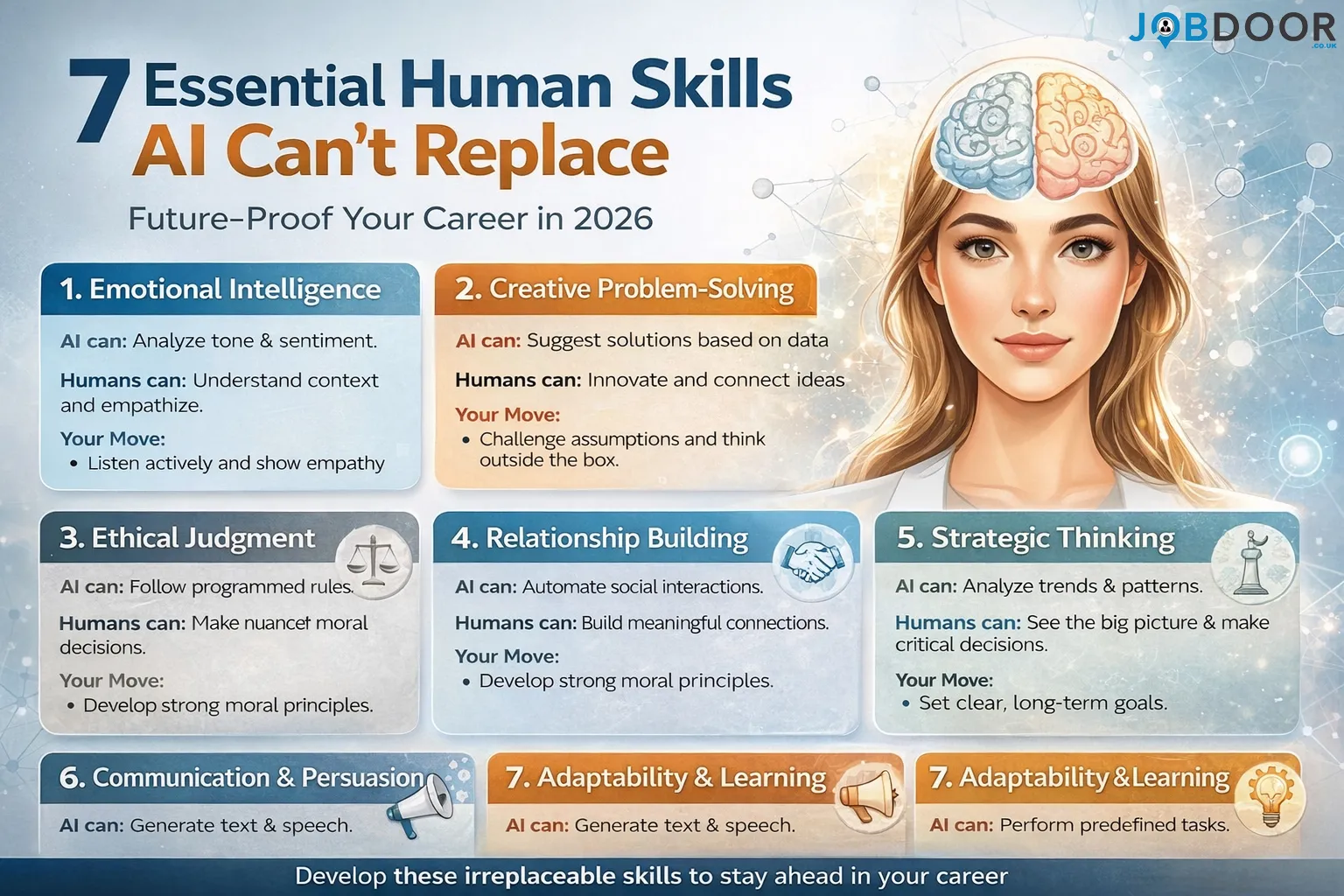
Artificial Intelligence is transforming how work is done. Automation, machine learning, and AI tools now handle tasks that once required large teams and years of experience. While this progress brings efficiency, it also raises a serious question for professionals across industries:
Which skills will still matter when AI becomes more powerful?
The answer is reassuring. Despite rapid technological advances, there are core human skills that AI cannot replace. These skills are not trends—they are timeless qualities that have always defined capable professionals. In 2026 and beyond, these abilities will become even more valuable.
This article breaks down 7 essential skills AI can’t replace, explains why they matter, and shows how you can strengthen them to stay relevant and respected in your career.
Why Human Skills Still Matter in the Age of AI?
AI excels at processing data, identifying patterns, and automating routine work. However, it lacks consciousness, values, lived experience, and moral responsibility. Businesses don’t just run on systems—they run on trust, judgment, relationships, and leadership.
Those who combine AI tools with strong human skills will not be replaced; they will be promoted.
1. Emotional Intelligence:
Emotional intelligence is the ability to understand emotions—both your own and others’—and respond thoughtfully.
What AI can do?
Analyze tone, sentiment, and behavioral data.
What only humans can do?
Show empathy, read context, build trust, and handle sensitive situations with care.
In leadership, customer service, negotiations, and teamwork, emotional intelligence is irreplaceable. People want to work with those who listen, understand, and respond with sincerity.
How to strengthen it?
- Practice active listening
- Improve self-awareness
- Learn to manage emotions under pressure
2. Creative Problem-Solving:
AI can generate ideas based on existing data, but true creativity comes from human insight.
What AI can do?
Suggest solutions based on patterns and probabilities.
What only humans can do?
Think outside the box, challenge assumptions, and connect unrelated ideas in meaningful ways.
Complex problems often require imagination, intuition, and experience—qualities shaped by human life, not algorithms.
How to strengthen it?
- Work on open-ended problems
- Learn across disciplines
- Question “standard” solutions
3. Ethical Judgment:
Ethics cannot be automated.
What AI can do?
Follow programmed rules and guidelines.
What only humans can do?
Make moral decisions, weigh consequences, and act with integrity in uncertain situations.
In areas like business leadership, law, healthcare, and governance, ethical judgment defines credibility. AI lacks accountability; humans do not.
How to strengthen it?
- Study real-world case studies
- Understand long-term consequences
- Commit to principles, not convenience
4. Relationship Building:
Strong relationships are built on trust, consistency, and mutual respect.
What AI can do?
Track connections and suggest networking opportunities.
What only humans can do?
Build genuine bonds, earn loyalty, and maintain long-term professional relationships.
Careers grow through people—not systems. Mentorships, partnerships, and client relationships are deeply human.
How to strengthen it?
- Communicate honestly and clearly
- Follow up consistently
- Add value before asking for favors
5. Strategic Thinking:
Strategy involves foresight, experience, and judgment.
What AI can do?
Analyze trends and optimize based on data.
What only humans can do?
Set vision, define priorities, and make trade-offs in uncertain environments.
Strategic thinking is not about reacting to data—it’s about deciding where to go and why.
How to strengthen it?
- Think long-term, not just short-term
- Study business and history
- Practice decision-making with incomplete information
6. Communication and Persuasion:
Clear communication remains one of the most powerful professional skills.
What AI can do?
Generate text, summaries, and scripts.
What only humans can do?
Persuade, inspire, negotiate, and communicate with authenticity.
Whether leading a team, pitching an idea, or resolving conflict, human communication builds understanding and alignment.
How to strengthen it?
- Improve writing and speaking clarity
- Practice explaining complex ideas simply
- Learn negotiation fundamentals
7. Adaptability and Learning Mindset:
The ability to adapt is the ultimate future-proof skill.
What AI can do?
Execute tasks it was trained for.
What only humans can do?
Learn continuously, adapt to change, and redefine roles as industries evolve.
Those who resist change are replaced. Those who adapt lead.
How to strengthen it?
- Stay curious
- Learn new tools without fear
- Accept change as part of growth
How to Combine AI with Human Skills?
The goal is not to compete with AI, but to work alongside it.
Use AI to:
- Automate repetitive tasks
- Improve efficiency
- Support analysis and research
Use human skills to:
- Make decisions
- Lead people
- Build trust and vision
This combination creates professionals who are both efficient and indispensable.
Common Career Mistakes to Avoid in 2026:
- Relying only on technical tools
- Ignoring people skills
- Avoiding responsibility and judgment
- Treating AI as a replacement instead of an assistant
Technology changes fast. Human values do not.
Final Thoughts:
Every major technological shift in history has rewarded those who preserved core human strengths while adopting new tools. The AI era is no different.
The 7 skills AI can’t replace—emotional intelligence, creativity, ethics, relationships, strategy, communication, and adaptability—have always mattered. In 2026, they matter even more.
If you invest in these abilities while using AI wisely, you won’t just survive the future of work—you’ll shape it.
Career
20 Skills That Will Pay You Forever and Why They Matter More Than Ever
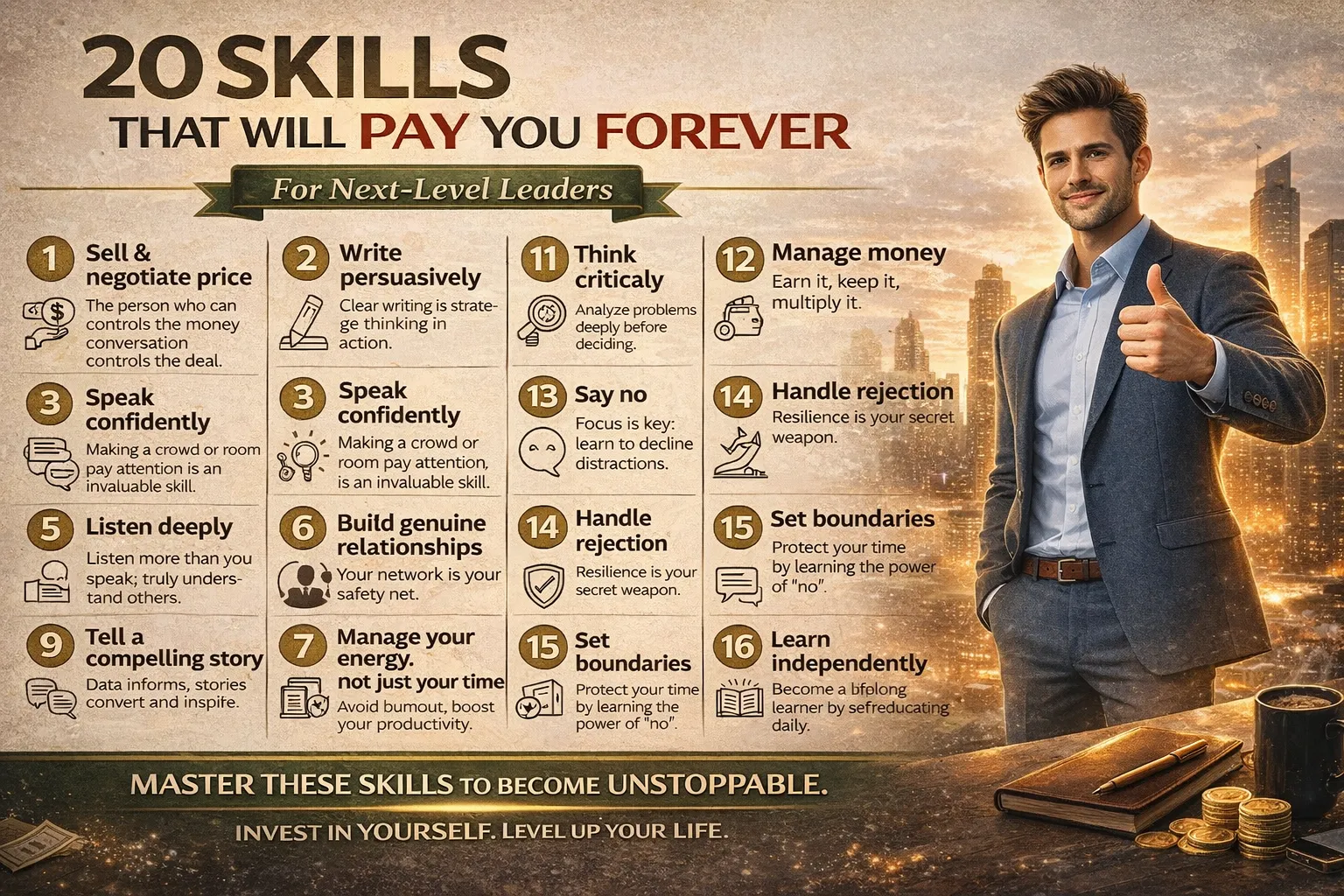
Some skills give short-term results. Others reward you for a lifetime. In a world where tools, technology, and job titles change every few years, skills are the only assets that compound over time. The image you shared highlights a powerful truth: if you master the right abilities, you will never struggle to stay relevant.
So what are the skills that continue paying you, no matter your industry, age, or location? And why do leaders, entrepreneurs, and high performers focus on them year after year?
Let’s break down the 20 skills that will pay you forever, and understand how they shape long-term success.
Why Skills Are More Valuable Than Titles?
Job titles expire. Skills don’t. Companies change, industries shift, and technologies evolve, but skills travel with you. When you invest in skills, you invest in earning power, influence, and independence.
The most successful people aren’t those with the fanciest degrees, but those who can adapt, communicate, decide, and lead under pressure. Isn’t that what true success looks like?
1. Selling and Negotiating Price
The ability to sell and negotiate controls income. The person who can confidently discuss value, pricing, and outcomes often controls the deal. Whether you are an employee, freelancer, or business owner, selling is unavoidable.
Why? Because selling is not about manipulation, it’s about communication and confidence.
2. Writing Persuasively
Clear writing is clear thinking in action. Those who write well can explain ideas, influence decisions, and build authority. Emails, proposals, content, presentations, and even messages depend on this skill.
Can you express complex ideas in simple words? If yes, you hold power.
3. Speaking Confidently
Confidence in speech changes how people perceive you. Speaking clearly in meetings, presentations, or conversations builds credibility. This skill is not about loudness, but clarity and calmness.
Would people listen if you spoke today?
4. Listening Deeply
Listening is a rare skill, yet one of the most valuable. Most people wait to speak instead of listening. Those who listen deeply understand needs, emotions, and opportunities others miss.
Isn’t understanding more powerful than talking?
5. Building Genuine Relationships
Opportunities come from people, not platforms. Strong relationships act as a safety net throughout life. Trust, consistency, and respect create long-term professional and personal growth.
Your network isn’t just contacts, it’s your support system.
6. Managing Your Energy, Not Just Time
Time management fails without energy management. Burnout kills productivity. Learning when to rest, focus, and recover keeps performance sustainable.
Do you protect your energy the way you protect your schedule?
7. Telling a Compelling Story
Facts inform, but stories inspire action. Whether in business, leadership, or marketing, storytelling connects logic with emotion. People remember stories far longer than statistics.
Can you turn information into meaning?
8. Thinking Critically
Critical thinking allows you to analyze situations before reacting. It helps avoid poor decisions, emotional choices, and surface-level thinking.
Do you pause to think deeply before deciding?
9. Saying No Without Guilt
Focus requires boundaries. Every yes costs time and energy. Saying no protects priorities and prevents distractions from stealing progress.
Are you comfortable protecting your focus?
10. Handling Rejection
Rejection is inevitable. Those who grow learn from it instead of taking it personally. Resilience turns rejection into refinement.
Can you move forward without losing confidence?
11. Strategic Thinking
Strategy is about direction, not speed. Knowing where you’re going matters more than how fast you move. Strategic thinkers see long-term consequences.
Are your daily actions aligned with long-term goals?
12. Managing Money Wisely
Earning money is one skill, keeping and growing it is another. Financial literacy creates stability, freedom, and peace of mind.
Do you control money, or does money control you?
13. Setting Healthy Boundaries
Boundaries protect time, mental health, and values. Without them, burnout and resentment follow. Saying no is not weakness, it’s wisdom.
Have you defined your limits clearly?
14. Learning Independently
Self-learning keeps you relevant. Waiting to be taught limits growth. Those who learn independently adapt faster and stay ahead.
Are you upgrading your skills regularly?
15. Decision-Making Under Pressure
Indecision costs more than mistakes. Learning to make calm, thoughtful decisions under pressure separates leaders from followers.
Can you act clearly when things get uncomfortable?
16. Emotional Control
Emotions influence outcomes. Managing reactions instead of being controlled by them builds respect and trust.
Do your emotions work for you or against you?
17. Adaptability
Change is constant. Those who resist change fall behind. Adaptable people adjust without losing their core values.
How well do you respond to unexpected change?
18. Discipline Over Motivation
Motivation fades. Discipline stays. Long-term success is built on routines, not moods.
Do you show up even when you don’t feel like it?
19. Confidence Without Arrogance
True confidence is quiet. It doesn’t need approval. It comes from preparation, experience, and self-belief.
Are you grounded in your abilities?
20. Integrity
Integrity builds trust that lasts decades. Skills bring opportunities, but integrity keeps them.
Would people trust you when it matters most?
Why These Skills Pay You Forever?
These skills compound. They improve every role you enter and every challenge you face. Unlike tools or trends, they don’t become outdated. They grow with you.
The more responsibility you carry, the more valuable these skills become.
Final Thoughts
Mastering these 20 skills doesn’t happen overnight. It’s a lifelong process. But every small improvement multiplies your earning power, influence, and confidence.
Success isn’t about chasing shortcuts, it’s about becoming someone who is always valuable.
If you invest in these skills today, the returns will follow you for the rest of your life.
Wouldn’t that be the smartest investment you can make?
If you want, I can also
✔ Create SEO meta title & description
✔ Turn this into a Pinterest or LinkedIn post
✔ Rewrite it for students, professionals, or entrepreneurs
✔ Optimize it specifically for kmrinside.in
Just tell me what you want next.
-

 Career2 years ago
Career2 years agoCareer Opportunities for Seniors: 7 Jobs that are Perfect for Older Adults
-

 Job Description2 years ago
Job Description2 years agoGraphic Designer Job Description: Education, Salary, Skills, Work Hours
-

 News2 years ago
News2 years agoStudents’ question to UK PM Rishi Sunak: “What if your kids started smoking?
-

 Career2 years ago
Career2 years ago13 Best Jobs That AI Can’t Replace: A Guide to Future-proof Careers
-
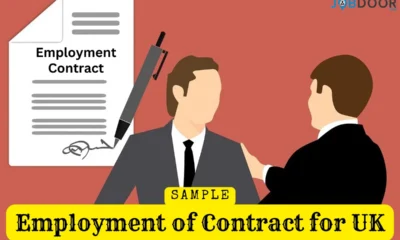
 Career2 years ago
Career2 years agoStandard Employment Contract Template Example for UK (Word & PDF)
-

 Money2 years ago
Money2 years agoHow To Get Paid to Read Books? (9 Best & Legit Sites)
-

 Job Description2 years ago
Job Description2 years agoSupport Worker Job Description: Qualifications, Skills, Salary, Working Hours
-

 News2 years ago
News2 years agoTop 10 Richest Countries in 2024 By GDP Per Capita











